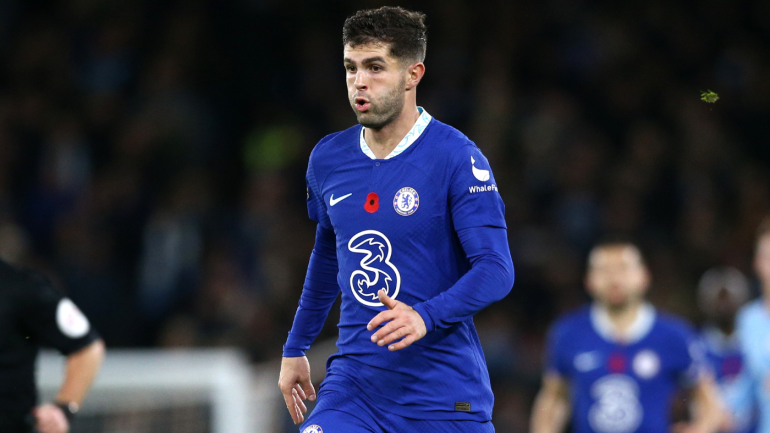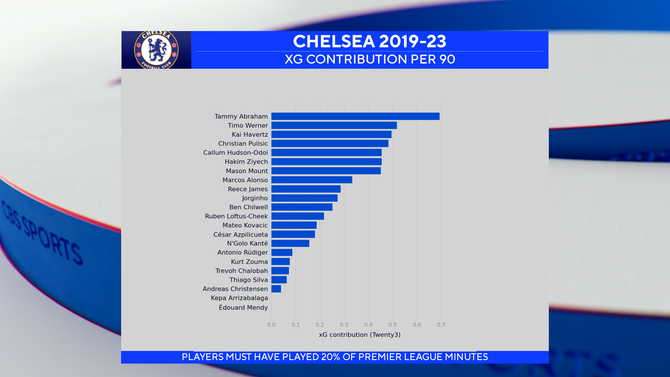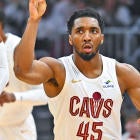
For a time Christian Pulisic was everything the US soccer community believed he ought to be: a key player at an elite club with a defined role and a head coach who had a vision for getting the very best out of his talent. The problem was that during those glorious few months he was still a footballer for Borussia Dortmund, his move to Chelsea due to go through in the summer of 2019.
It is easy to convince oneself that there is an alternate reality where Chelsea do not cave into supporter pressure, conclude that Sarriball is not to be messeded with, and realize that a promising season with Derby County might not be enough to qualify Frank Lampard to follow some of Europe's most elite coaches. In that world perhaps Pulisic is to Maurizio Sarri's Chelsea what Lorenzo Insigne was to Sarri's Napoli, the final third killer on a rip-roaring, left-leaning attacking machine.

Golazo Starting XI Newsletter
Get your Soccer Fix from Around the Globe
Your ultimate guide to the Beautiful Game as our experts take you beyond the pitch and around the globe with news that matters.
Thanks for signing up!
Keep an eye on your inbox.
Sorry!
There was an error processing your subscription.
Then again, over four years at Chelsea that player emerged only for a matter of weeks, the dizzying dart through the post-lockdown Premier League that was brought to a juddering halt, as so many of Pulisic's best moments have been, by injury at an inopportune moment. In the 49 minutes before he limped out of the 2020 FA Cup Final, the American might just have been writing his place into Chelsea folklore, his devastating tandem with Olivier Giroud tearing the Arsenal defense to ribbons. Bursting away from the leaden-footed Rob Holding, Pulisic is tearing upfield from his own half into the opposition penalty area. No one, neither Granit Xhaka nor team mate Mason Mount, can get near to him. He opens his body up to bend in one of the great goals that Wembley has seen... and his hamstring goes pop. Things were never the same again.
Three years on, Pulisic departs for AC Milan something of a foot note in Chelsea history, one of many forwards who might feel that they were rarely if ever put in an environment conducive to their success. Successive managers could shoulder the blame. Lampard might have publicly claimed otherwise, but his view of the USMNT star was apparent in how infrequently he picked him from the off.
Thomas Tuchel and Pulisic were never as close as their past union with Dortmund might have suggested and the American bristled when the topic of his coach came up; no wonder when he would subsequently describe himself as "dumbfounded and very disappointed" to have been dropped from the starting XI to face Real Madrid in the second leg of the Champions League semifinal, a match where he came off the bench to provide the assist for the team's second goal. There were no such widely trailed comments from Pulisic's autobiography on his head coach's decision to start him in both domestic cup finals against Liverpool the following year, games where he spurned big chances that would have swung the outcome in Chelsea's favor.
“If he’s healthy, he’s starting in two different positions.”@Bonetti thoughts on what can be @pulisic’s role at AC Milan this upcoming season. 🔴⚫ pic.twitter.com/W0hPwJFZIq
— CBS Sports Golazo ⚽️ (@CBSSportsGolazo) July 12, 2023
By the time Graham Potter took over, a consensus had coalesced. Pulisic was certainly useful to have, and the new owners made great play over having the USMNT's biggest name on their roster, but on the pitch the LeBron James of soccer was rather more Jae Crowder: an objectively useful, versatile player who strengthens the depth chart of a team with championship aspirations, but isn't anything like the piece around whom those dreams pivot.
And yet, there was more truth to Corey's meme-tastic labeling of Pulisic on the show Pawn Stars than the internet might have initially accepted. He is not and will never be the greatest of all time in his field in the same way that James can reasonably claim to be, but when Pulisic dons the stars and stripes he takes on a role of significance comparable to The King. It's just the scales are lowered, from NBA Finals to Nations League Finals.
Don't miss CBS Sports Golazo Network's Morning Footy, now in podcast form! Our crew brings you all the news, views, highlights and laughs you need to follow the Beautiful Game in every corner of the globe, every Monday-Friday all year long
Pulisic did deliver in those moments: the 114th minute winner over Mexico in a Nations League final, the goal against Iran that took the USMNT to the last 16 of the World Cup. In doing so he further embedded the dichotomy between his own US-centric supporters, pressed into following Chelsea for four years, and those who would follow the Blues long after he had departed. Scarcely a week went by when his absence from a team was not greeted with bafflement by Americans, particularly those who had made the pilgrimage to Stamford Bridge in expectation of something more than 15 minutes off the bench.
Ultimately, the issue was one of knowing each team's place in the footballing firmament. Pulisic was inarguably the attacking superstar of an upper-mid tier international side, one who hit its current realistic ceiling in Qatar's World Cup last year. It is eminently possible that that player might only be the fifth best attacker on a team who, for a significant proportion of his time there, ranked among the half dozen best in Europe. Through four seasons in the Premier League, Pulisic delivered solid output. His 98 Premier League games brought 20 goals and nine assists, the 24 year old averaging a direct goal contribution every 191 minutes.
His expected goals (xG) per 90 sat at 0.34 per 90 minutes, an eminently solid number for a wide forward. Include his expected assists in the mix and you up with an xG contribution of 0.48 per 90. It's good, as were the many take-ons he offered. The issue is that Chelsea want, and can afford, more than solid output in front of goal and not much else (which is the difference between the American and, for instance, Mason Mount).

Deliver those numbers in a Nottingham Forest, Bournemouth or Everton shirt and Pulisic might have taken on a similarly outsized role for his club side as he did for his national team. Which bucket that level of performance would place him in at Milan remains an open question. Surely, a team that just reached the semifinals of the Champions League and is only one season removed from a Scudetto winning campaign, would envision more than Pulisic's good but not great numbers from their marquee transfer. But, similarly, when you look at a Milan squad which outside of Rafael Leao and the ageless Giroud is light on attacking options, the Pulisic who was a rotation piece at Chelsea seems likely to earn considerably more minutes in Milan, even if his past form is perfectly predictive of future results. His former club, however, will always believe they can find better production than that on the market. And they did. Even after a disastrous first season at Stamford Bridge, Raheem Sterling's xG contribution is 0.69.
That is the dichotomy of Pulisic, already a player who might figure on a USMNT Mount Rushmore, but who is not so great that his absence would ever truly be noticed by the monied elite of European soccer. In one game, he carried the hopes of a nation on his shoulders, the next, his presence was greeted with shrugs. Such is the gulf in class between the international and club game, that might not change when he arrives at the San Siro.





















